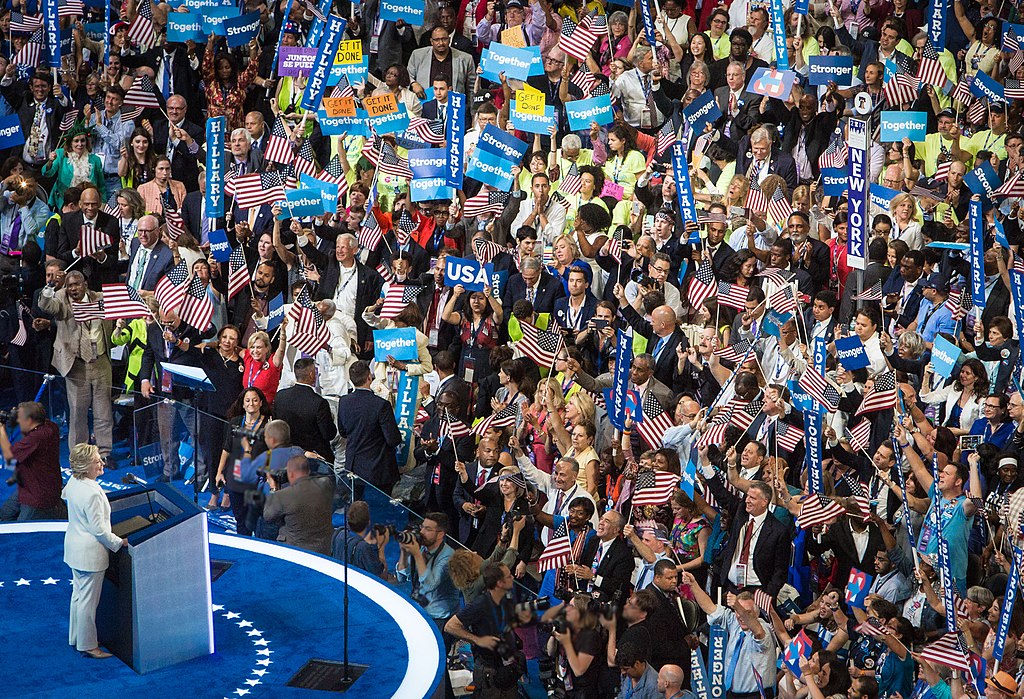Over the years, several women and people of color in this country have run for president. But Barack Obama and Hillary Clinton charted new territory to become the first African American president and the first woman nominee from a major party, respectively.
The breaking of those barriers changed this country. We currently find ourselves in the midst of a struggle between the hope those changes represent and the ugly backlash they have unleashed. Rebecca Traister articulated it very well in the lead-up to the 2016 election.
Whatever their flaws, their political shortcomings, their progressive dings and dents, Barack Obama and Hillary Clinton mean a lot. They represent an altered power structure and changed calculations about who in this country may lead…
This is our country in an excruciating period of change. This is the story of the slow expansion of possibility for figures who have long existed on the margins, and it is also the story of the dangerous rage those figures provoke.
Implicit during the 2008 primary and election was the question about whether or not the country was ready to elect an African American president. Similarly, in 2016, it was about whether we were ready to elect a female president.
For many people on the right, the answer to those questions is still “no.” But when MSNBC identified the top 15 contenders who had yet to enter the 2020 Democratic primary, all of whom were white men, Dylan Scott wrote this:
Implicit in their hesitation seems to be a recognition that white men running for the Democratic nomination need something on top of the bare qualification of holding public office. The party has embraced its diversity and been blessed with a litany of women and people of color who can claim the same qualifications as most of these white men in their pursuit of the White House.
Being an experienced white guy isn’t enough anymore. And the party doesn’t see anything wrong with that.
Since he wrote that, two of the top tier white men have announced their candidacies: Bernie Sanders and Beto O’Rourke. In a testament to how much the narrative has flipped, both of them have now faced the question about whether the Democratic Party is ready to nominate a white man. Here’s how Sanders answered:
When asked by VPR’s Bob Kinzel about concerns that he no longer best represents “the face of the new Democratic Party,” Sanders, 77, said:
“We have got to look at candidates, you know, not by the color of their skin, not by their sexual orientation or their gender and not by their age,” Sanders said. “I mean, I think we have got to try to move us toward a non-discriminatory society which looks at people based on their abilities, based on what they stand for.”
This was O’Rourke’s response:
O’Rourke is acutely aware, too, of perhaps his biggest vulnerability—being a white man in a Democratic Party yearning for a woman or a person of color, a Kamala Harris or a Cory Booker. “The government at all levels is overly represented by white men,” he says. “That’s part of the problem, and I’m a white man…
“But I totally understand people who will make a decision based on the fact that almost every single one of our presidents has been a white man, and they want something different for this country. And I think that’s a very legitimate basis upon which to make a decision. Especially in the fact that there are some really great candidates out there right now.”
Whether it is because of his age or personal experiences, it is clear that O’Rourke understands this moment more deeply than Sanders. But, from a political perspective, there will be those who view O’Rourke’s response as a weaker argument for his candidacy.
For those who feel uncomfortable with the fact that white men are facing this question, it is important to keep in mind that it has been asked of women and candidates of color for decades. It is not as if the query introduces a form of identity politics, because anyone in the past who wasn’t a white male has been dealing with that since this country’s founding.
The 2020 election is still more than a year and a half away and issues about race and gender are likely to surface in many ways over the course of the campaign. But it is worth taking a moment to notice that, at least for Democrats, a major narrative we’ve lived with for over 200 years has flipped. With many challenges left to face, that is worth celebrating.



